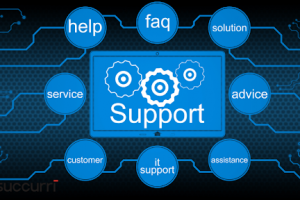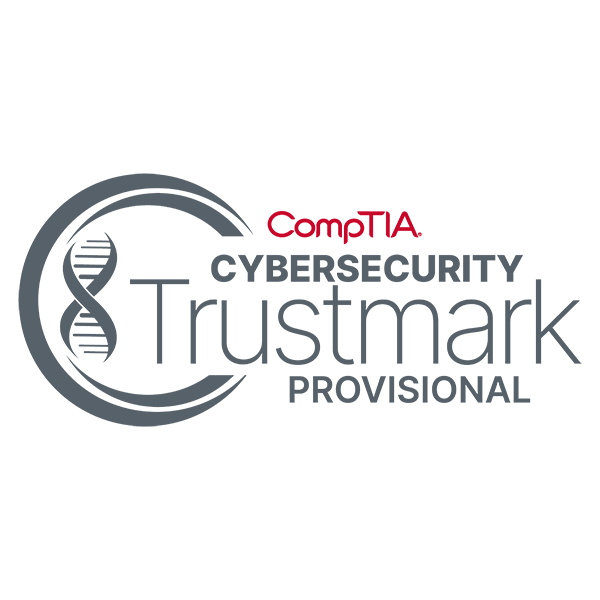Understanding PCI DSS
Succurri provides solutions for companies searching for a secure interface in which to transfer sensitive information.
Does your business accept credit cards? Do you need it to? In order to open your WA area small business up to the enhanced profit potential that accepting credit cards can provide, you’ll need to understand what responsibilities you take on by accepting these forms of payment. Small businesses are prime targets for data plunderers. If you don’t protect against these thieves, you may be subject to paying restitution, and fines, or lose the ability to accept cards as payment.
Security Standards
The Payment Card Industry Data Security Standard (PCI DSS) is a compliant data transfer standardization that is used to ensure the security and privacy of the transfer of financial information. It was designed as a standard to ensure that any company that would process, store, or transmit credit card information maintains the infrastructural security necessary to provide a secure pathway in which to transfer financial information.
While PCI DSS is not a law on the books, it is a global and almost universally accepted set of security protocols that govern the health of a company’s computing integrity in regard to its ability to keep consumer and vendor financial information safe. The six goals of PCI DSS are:
- Create, manage, and maintain a PCI-compliant network.
- Protect the data that your organization has acquired.
- Create and maintain a plan in which to manage your environment’s vulnerabilities.
- Implement enhancements to the access control interface.
- Monitor, manage, and regularly test networks.
- Maintain a policy in which to continuously manage your organization’s data security.
PCI DSS also provides merchants with many useful practices that work to ensure that you aren’t short-changing your data security protocols.
Security Paradigm for Acceptance of Digital Card Payments
Phase One – Assessment
The primary reason to assess your technology is to ascertain if it has vulnerabilities that would pose risks to cardholder security. Understanding the PCI DSS goals is paramount to this step so you can look through your hardware and software and consider where there may be a hole. In order to perform a proper assessment, business owners need to determine how credit card transactions flow through their computing system. Only then can you get the answers you need on if, and how, you will need to alter your IT infrastructure to accommodate PCI DSS. Additional resources are available, including:
- Self-Assessment Questionnaires – The completion of a questionnaire that is designed to assist you in determining where you are, as opposed to where you need to be in regards to PCI DSS.
- Qualified Assessors – There are professional services that will test your system to ensure everything is secure and working properly.
It is essential to understand the processes you use to charge and store your customer’s financial information as it is your responsibility to keep this information safe.
Phase Two – Remediation
Once you have identified the vulnerabilities, you will have to fix them in order to avoid the headaches associated with non-compliance. The remediation process is your organization’s chance to expose flaws in its information storage security and diligently patch those flaws. Succurri’s IT technicians can assist your organization in the remediation process.
Phase Three – Reporting
Once your remediation process is complete, you then must compile your findings and submit the required remediation validation records and compliance reports to the acquiring bank and card processing centers. Every WA small business that wants to accept and store consumer credit card information needs to report a functional and secure PCI DSS system in order to be in compliance.
Why Be Compliant?
Compliance with the PCI DSS can have serious benefits for businesses of all sizes, while failure to comply will likely result in negative results. The benefits include:
- Compliant systems are more secure, which presents customers with an avenue to develop a stronger bond of trust with your organization.
- PCI DSS compliance is not a one-time event, rather it is an ongoing process. When you commit to PCI DSS you are part of the solution. This attracts the kind of vendors an organization needs to be successful.
- With PCI DSS compliance you will be better equipped to comply with other federal and state mandated data security regulations.
- By adhering to compliance standards you will likely identify variables to streamline your IT infrastructure.
While there are many more benefits of compliance, some of the detrimental characteristics of a failure to comply with PCI DSS regulations include:
- Compromised data has a tendency to negatively affect consumers, merchants, and financial institutions.
- One negative incident can damage your company’s reputation so severely that you may have trouble conducting business effectively.
- You may be inundated with lawsuits, fines from multiple regulatory organizations, canceled accounts, and insurance claims.
It’s a fact that your company will have a hard time competing without a solution in place to accept credit cards as a payment. To learn more about Payment Card Industry Data Security Standard compliance or any other data security compliance your organization may need, call us today at (206) 785-7828.








